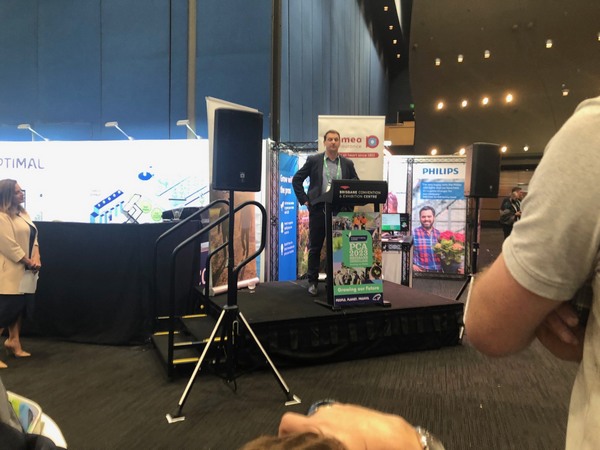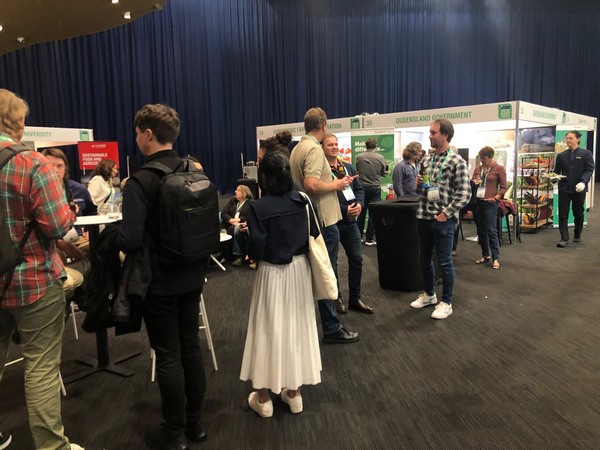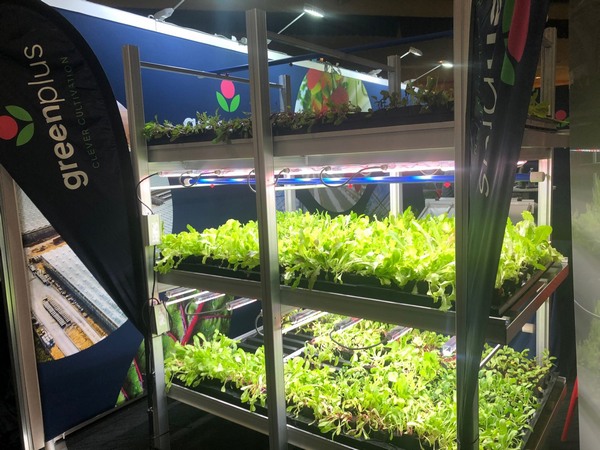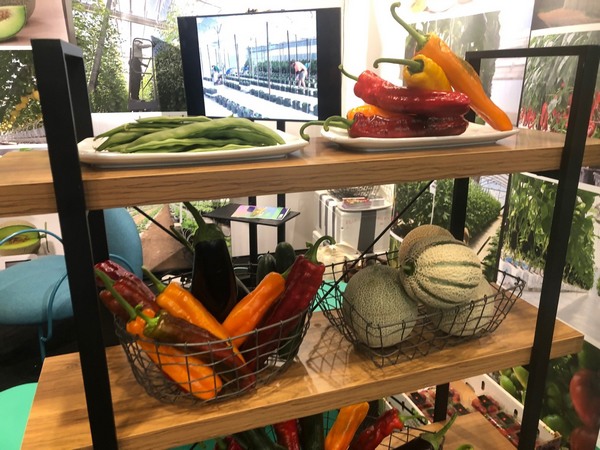The biggest-ever Protected Cropping Australia (PCA) conference has begun in Brisbane with the launch on Monday, as the industry looks to discuss ways to capitalize on global growth.
Executive officer of PCA Sam Turner says it is exciting that around 600 people are registered for the conference, and more than 200 are growers, who will take part in presentations from around 80 speakers and sessions throughout the course of the two-day event.
 Photo: Welcome Reception Sponsor, Richard Officer, Achmea Farm Insurance
Photo: Welcome Reception Sponsor, Richard Officer, Achmea Farm Insurance
"The biggest overarching theme for us at the conference is growing our future through people, planet, and profits," Mr. Turner said. "That's really embedded in everything that is going on around us. We have a key focus on people; I think that often gets lost, but what we are doing is trying to focus on the fact that people are the fundamental input into these systems. Sustainability is also becoming more of an issue, so we will have a focus on that - and then at the end of the day, we all do this for profit, so it is a good rounding out of the whole system. We would like to highlight a quote: 'If you want to go fast, go alone; if you want to go far, go together - and that's what we are about, and there is a vibe around collaboration and networking."

Mr. Turner explains that protected cropping around the world is moving forward in "leaps and bounds," and in Australia, growth rates are above 7-10 percent year on year.
"A lot of our greenhouse builders are backed up with work because there is a lot of interest coming into the sector," he said. "I think COVID-19 has been a wake-up to industry, and the just-in-time supply chains have shown their fragility. So, I think we are moving into a new world order, whatever that looks like, and what we are finding from a supplier side is that you need to support your growers when they need it. You can't wait 5-6 weeks for a container to come from overseas; they need it much quicker when it's needed. Also, the markets have been up and down over the past few years, and while some of the COVID challenges are starting to level out, we are moving into a high inflationary environment, so there are new challenges. Growers need to be nimble in what they are doing but also understand the cost of production."

In a session that was held on the opening day of the conference that Mr. Turner was highly successful was around plant empowerment and the idea of putting the plant first and minimizing waste through temperature controls and input costs.
"What we are going to see going forward is growers will have a much better understanding of what goes into growing their crops and have a better understanding of how to price their crops," Mr. Turner said. "It's an exciting time for the industry, I mean, there are challenges, but there's a lot of new techniques and improvements that are helpful. Things like artificial intelligence and advanced algorithms are starting to emerge. We are plagued with a lack of data, in agriculture we haven't been tracking the information that we need to, but that is changing very quickly. We are seeing some turnkey solutions in terms of glasshouses that are automated systems around genetics. I think that's a key point that there is a need for new genetics and understanding how the plant works at a fundamental level - then designing systems to produce the best quality system in the end."

There will also be discussions around marketing techniques, as growers aim to get "closer to the consumer than ever before," offering opportunities for product development, new varieties, and "creative capitalization on what has previously been a commodity market."
The presentations will be held on Tuesday and Wednesday, with the industry dinner on Wednesday night and farm tours across the region to wrap up the event on Thursday.
